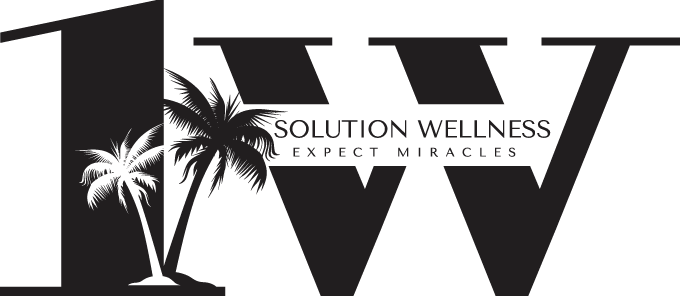Families across the United States have been faced with the deep, devastating challenges of opioid addiction for decades now. Since 2011, when the Centers for Disease Control and Prevention (CDC) declared the opioid epidemic, hundreds of thousands of opioid addicts have died as a result of their use. Today, more than 2 million people abuse prescription opioids while an additional one million are hooked on heroin. There is no doubt that opioid addiction has reached epidemic status nor is there any question that it remains that serious.
The disease of addiction cannot be cured, but it can be treated. There have been several advancements in addiction treatment over the years, and in terms of treating opioid addiction, some of those advancements have proven to be life-saving. Medication-assisted treatment, or MAT, is a comprehensive, therapeutic and pharmacological approach to treating opioid addiction. For decades, medication-assisted treatment has been offered in addiction treatment centers throughout the world. Today it remains the gold-standard of care for those who want to stop their active opioid addiction for good.
What is Medically-Assisted Treatment?
Medication-assisted treatment (MAT) is the leading type of treatment for people addicted to opioids. This type of programming works by combining evidence-based therapies and counseling techniques with prescription medications designed specifically to treat opioid addiction.
The Substance Abuse and Mental Health Services Administration (SAMHSA) states that the goal of medication-assisted treatment is complete recovery by providing a “whole-person” approach to addiction treatment. Not only has medication-assisted treatment proven to treat opioid use disorders, but it has also shown to help recovered individuals sustain and maintain their recovery successfully.
- Improve patient survival Increase retention in treatment
- Decrease illicit opioid use and other criminal activity
- Increase patients’ ability to gain and maintain employment
- Improve birth outcomes among women who are addicted to opioids while pregnant
These benefits are able to develop because medication-assisted treatment works to help restore both the mind and the heart with the use of therapies and medication
What Medications are Used in Medication-Assisted Treatment?
Medication-assisted treatment programs utilize certain FDA-approved medications to treat patients recovering from active opioid addiction. Most commonly, these medications include methadone, buprenorphine, and naltrexone.
Methadone
Methadone is an opioid agonist, meaning that when it is consumed, it binds to and activates the opioid receptors in the brain. Because methadone is mimicking other more potent opioids, the body does not experience such severe withdrawal. Suddenly ceasing all opioid use when dependent will quickly cause the body to experience withdrawal symptoms that range in intensity from mild to severe. These withdrawal symptoms are one of the main reasons why people who attempt to get sober relapse, as they begin using again just to get some relief from these painful, nagging symptoms.
When methadone is introduced, however, the body does not experience such an intense period of withdrawal. This is because the body is being slowly weaned off of the high, dangerous doses being consumed before. Methadone is effective in activating the opioid receptors in the brain in ways that allow for this outcome. However, methadone is an opioid medication. It is nowhere near as potent as other opioids, but it can still become habit-forming if used outside of prescribing guidelines. For some, the inclusion of methadone into the medication-assisted treatment plan lasts for a few weeks, while for others, it goes on for years.
Buprenorphine
Similar to methadone, buprenorphine works to minimize withdrawal symptoms and cravings associated with opioid addiction. Buprenorphine is a partial opioid agonist, meaning that it produces the same effects as other opioids do but in a much more minimal way. This happens because buprenorphine only partially attaches to the opioid receptors in the brain, making other medications like methadone more powerful.
Buprenorphine was introduced to the addiction treatment field in the early 2000’s and has since been revered as the top option for opioid addiction treatment. When it is taken as prescribed and under the supervision of a professional, buprenorphine is effective in controlling cravings and withdrawal symptoms. This allows a person in recovery the opportunity to focus on their therapy rather than remain distracted by the physical issues associated with withdrawal or cravings.
Naltrexone
Naltrexone is a medication that can come in pill form as well as via injection. It is common for recovering opioid addicts to receive naltrexone injections (known as the brand name Vivitrol) once a month to help reduce cravings. Naltrexone, unlike methadone and buprenorphine, should never be consumed during detox, as it can increase withdrawal symptoms. Instead, it is recommended to wait until detox has completed to begin the inclusion of naltrexone into a person’s medication-assisted treatment plan.
What Therapies are Used in Medication-Assisted Treatment?
Each individual patient of a medication-assisted treatment program is going to require their own care plan. They will need medications and therapies that will address their personal treatment needs. The therapies that a patient will participate in will be dependent on the type of mental and emotional treatment they need. The goal of these and other therapies is to help identify, address, and heal from the issues that influenced a person’s active opioid addiction.
That being said, there are several types of evidence-based therapies offered in medication-assisted treatment programs, including but not limited to, the following:
- Individual psychotherapy
- Group counseling
- Cognitive behavioral therapy (CBT)
- Dialectical behavioral therapy (DBT)
- Motivational interviewing
- Contingency management
Addiction Treatment in Orange County
If you are addicted to opioids but are ready to stop using, call us right now. We understand how difficult this first step can be, but rest assured that we will be with you the entire way. Call us today to speak with one of our experienced and compassionate staff members. We look forward to guiding you towards the care that you so desperately deserve. So, do not waste one more second abusing opioids. Pick up the phone and reach out to us right now. You have the power to change your life. Call us today.




